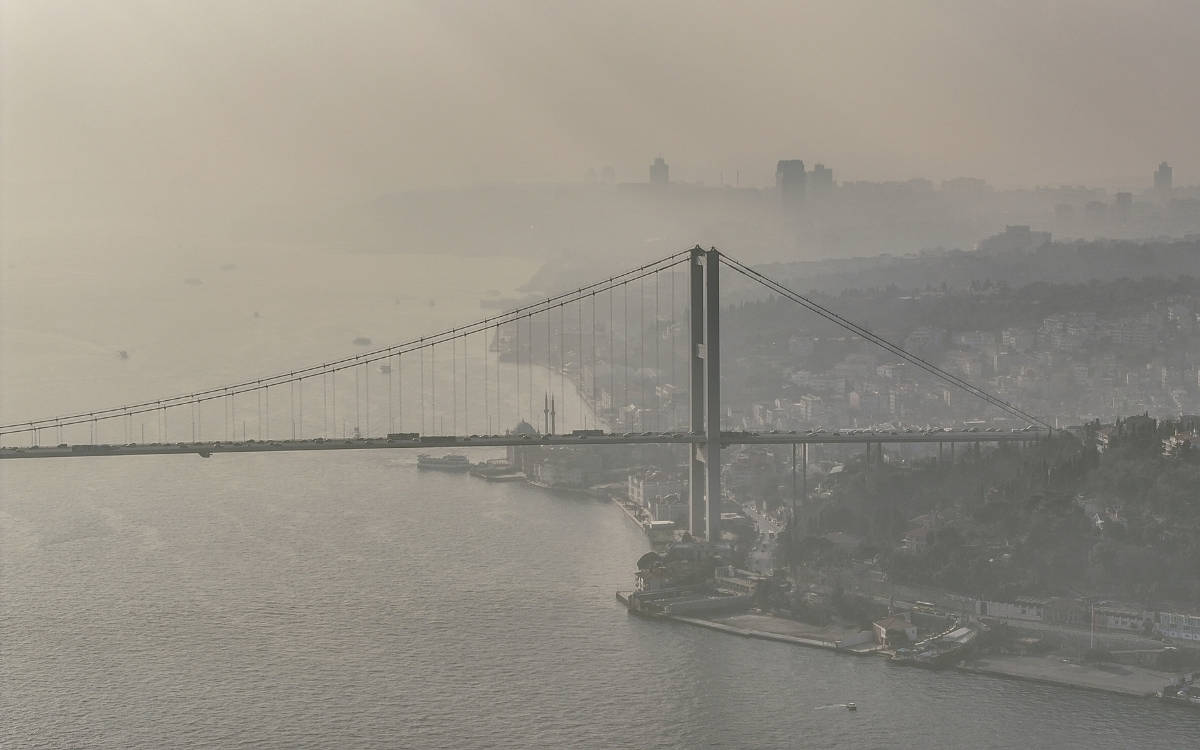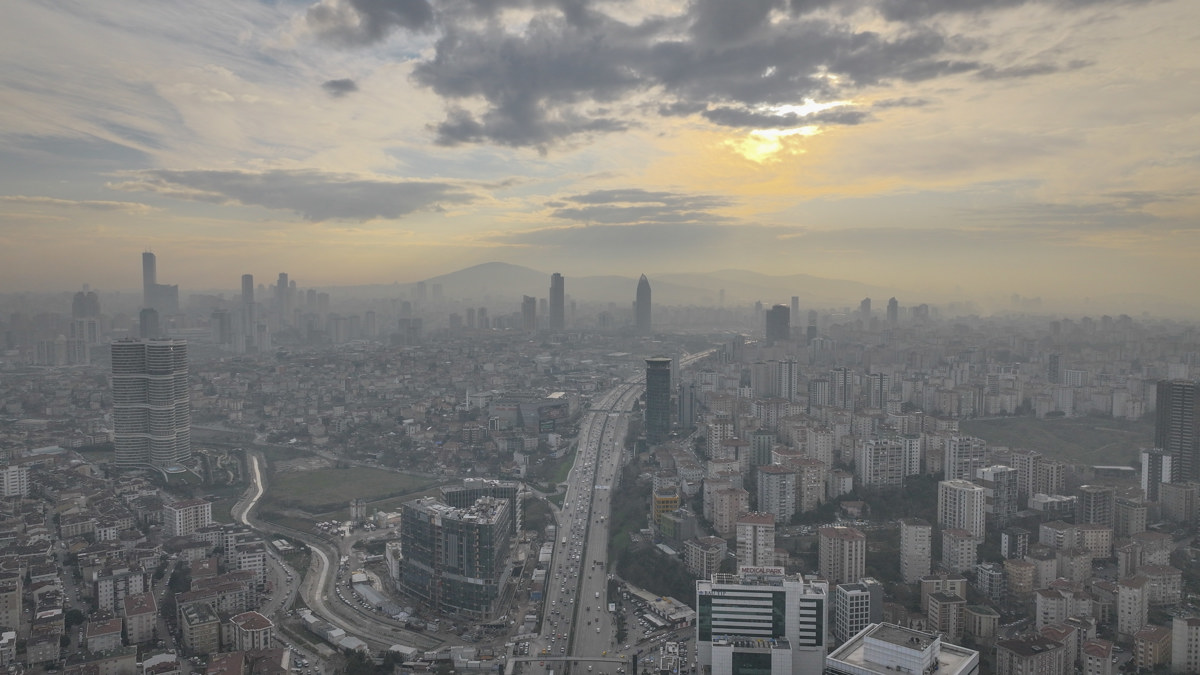İstanbul grapples with high air pollution levels


İstanbul has experienced a significant rise in air pollution, with the highest levels recorded in the Göztepe district, according to official monitoring data. The lowest pollution levels were reported in parts of Sultangazi and Beylikdüzü.
The pollution surge coincided with recent foggy and hazy weather conditions in the city. Air quality is being monitored in real-time by Turkey’s Environment, Urbanization, and Climate Change Ministry’s National Air Quality Monitoring Network (NEFES) and Istanbul Metropolitan Municipality's Environmental Protection Department.
Air quality stations placed throughout the city measure pollutants such as PM10 and PM2.5, providing data that categorizes air quality into six levels:
- "Good" (green) for values between 0 and 50,
- "Moderate" (yellow) between 51 and 100,
- "Unhealthy for sensitive groups" (orange) between 101 and 150,
- "Unhealthy" (red) between 151 and 200,
- "Very unhealthy" (purple) between 201 and 300,
- "Hazardous" (maroon) between 301 and 500.
At 10.00 am on Feb 2, Kadıköy and Sancaktepe on the city's Anatolian side, and Kağıthane on the European side, were among the most polluted areas, categorized as “orange.”
Traffic and industry fueling pollution
Air quality data for 2023 indicates that İstanbul’s PM10 pollution levels averaged 39.77 micrograms per cubic meter—2.65 times higher than World Health Organization (WHO) guidelines. The highest pollution stations last year were in Göztepe, Kağıthane, and Tuzla.
Göztepe’s station, located in a high-traffic area, showed elevated PM10 levels, while Kağıthane and Tuzla experienced widespread pollution, affecting a larger number of residents.

Professor Levent Kuzu, an environmental engineering expert at İstanbul Technical University (İTÜ), explained that air pollution worsens under high-pressure weather systems. "During high-pressure conditions, pollutants are trapped near ground level because they cannot disperse into the atmosphere," he told Anadolu Agency (AA).
"Recently, heavy morning fog around the Bosphorus was a sign of this high-pressure system. The pollutants remain near the surface, leading to increased pollution," Kuzu added.
Meteorologists expect rain early next week, which could help reduce pollution by washing particulate matter from the air.
Turkey’s air quality in global context
A report by Swiss air quality technology company IQ Air ranked Turkey 44th globally in terms of PM2.5 pollution, with an annual average concentration of 20.3 micrograms per cubic meter. In contrast, Bangladesh topped the list with 79.9 micrograms per cubic meter.
According to the Clean Air Rights Platform's "Black Report 2024," more than 4 million people worldwide die annually from PM2.5-related diseases. The report states that over 92% of Turkey’s population breathes polluted air, with the average person exposed to PM2.5 levels five times higher than WHO recommendations.
Professor Kuzu warned that prolonged exposure to high pollution levels could lead to respiratory illnesses. He advised residents to monitor air quality reports and wear masks on days when pollution is severe. (VK)



